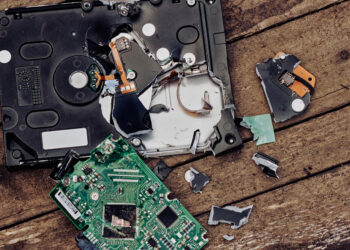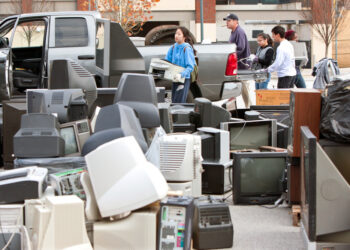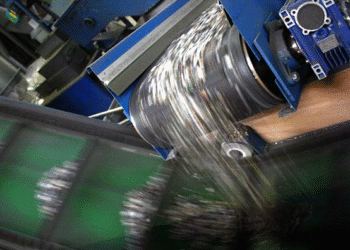E-Scrap News
Certification scorecard for the week of Feb. 23, 2026
The following are facilities that have achieved, renewed or otherwise regained R2 certification recently: Apto Solutions of Austin, Texas, and...
DTSC certifies Comstock Metals to recycle PV modules
Nevada-based Comstock Metals has opened a solar panel recycling facility in Kings County, California, expanding its zero-landfill PV module processing...
Battery fire risk isn’t going away. Insurance is responding
In 2026, insurability may depend on how convincingly facilities can demonstrate they are both preventing ignition and limiting catastrophic loss...
Paladin opens Maryland site to serve DC area
The company opened the satellite site in Laurel to serve DC-area data centers and smaller offices with on-site data destruction,...
Vermont’s battery stewardship law targets fire risk
The state's new law gives residents more options to safely dispose of everything from single-use alkaline batteries to medium-format e-bike...
Umicore highlights strength in recycling, catalysis
The company's 2025 performance offers a compelling case study in how established recovery models can provide a buffer during periods...
Apto, Tusaar partner on rare earths recovery
The collaboration centers on capturing critical materials from shredded hard drives for Tusaar’s domestic processing stream.
Nebraska grant recipients include electronics, battery programs
The grants will help fund collection of used electronics in the state, which last year passed a battery EPR law.
Sony heads renewable plastic supply chain
Sony and 13 partners formed a unique global supply chain to make circular plastics for Sony high-performance audiovisual products using...
Sims Lifecycle leverages hyperscale decommissioning
A 70% surge, a new Ireland facility, and a DDR4 supply squeeze signal a changing competitive order in ITAD.
More Posts
Work With Us
Newsletter
Get the latest recycling news and analysis delivered to your inbox every week. Stay ahead on industry trends, policy updates, and insights from programs, processors, and innovators.






















